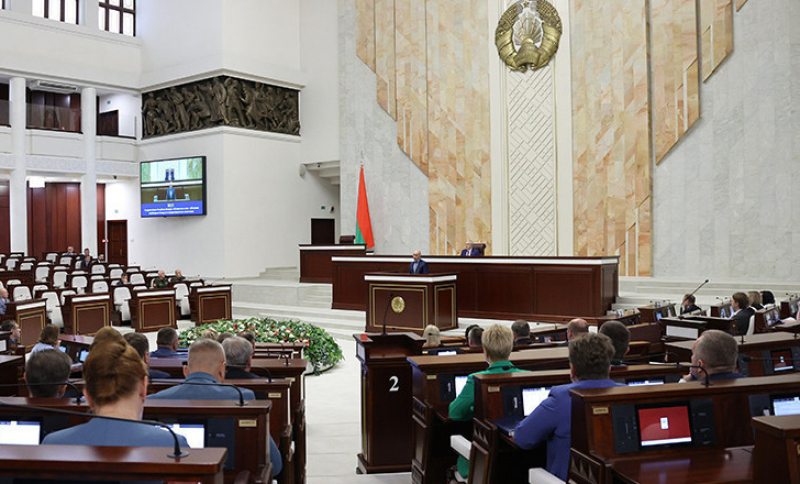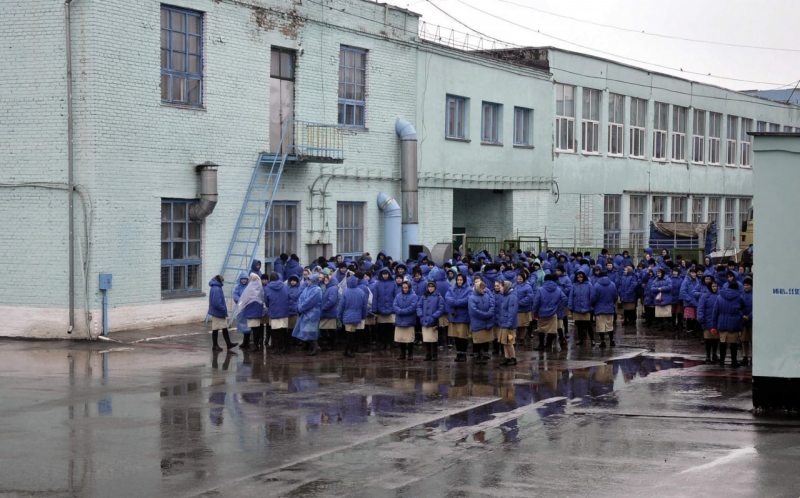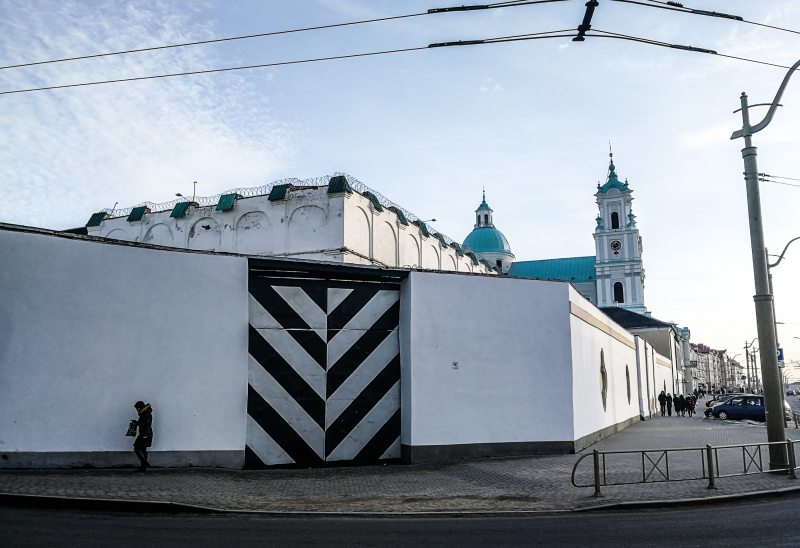Amnesty 2024: in honor of the liberation of Belarus without the release of political prisoners
Almost ten years have passed since the day Ales Bialiatski, the head of Viasna human rights center, was released from imprisonment in 2014. The formal reason for the high-profile event was the amnesty in honor of the 70th anniversary of the liberation of Belarus from fascism. This was Ales' first criminal conviction, which the authorities "rewarded" him with for his human rights activities. Unfortunately, the current amnesty, which is also dedicated to the anniversary of the liberation of the country, does not provide such an opportunity. Neither for Ales, nor for other political prisoners, who are now much more numerous than in 2014. Viasna, together with lawyer Aleh Matskevich, discuss the specifics of the next Belarusian amnesty.
Most of the future amnestied persons are those who are currently serving their sentences without imprisonment
On May 30, 2024, deputies of the House of Representatives adopted the bill On Amnesty in Connection with the 80th Anniversary of the Liberation of Belarus from Nazi Invaders. The bill was submitted to the House of Representatives on May 23, 2024, and was represented by Deputy Minister of Internal Affairs Henadz Kazakevich.

- Vote in the House of Representatives for the amnesty law
It is assumed that the amnesty will affect about 7850 convicts. Of this number, only 300 people will be released from places of imprisonment, 260 of them who were sentenced to imprisonment will receive a more lenient punishment in the form of restriction of freedom without being sent to an open-type correctional institution, and 40 people will be released from arrest. Most of the future amnestied persons are those who are currently serving their sentences without imprisonment. Some convicts will have their sentences reduced by 1 year. It is stated that the main conditions for being amnestied are full compensation for the harm caused by the crime and a positive feedback about the person during the period of serving the sentence.
Since Belarus asserted its independence, more than a dozen amnesty laws have been adopted. This usually happens in connection with the state celebration of some anniversary: the liberation of Belarus from Nazism, or victory in the war. There are also amnesties without solemn occasions: they ensure the release of certain categories of persons who have committed a crime.
The amnesty will in no way affect the situation of political prisoners
Since 2020, this is the third amnesty law. The two previous ones — On Amnesty in Connection with the 75th Anniversary of Victory in the Great Patriotic War of 1941-1945 and On Amnesty in Connection with National Unity Day — were announced in May 2020 and December 2022, respectively.
Amnesty 2024, like the previous one, will in no way affect the situation of political prisoners: the law does not involve more lenient sentences for persons involved in extremist and terrorist activities. As of today, there are 1,402 political prisoners in Belarus, and all of them are classified as extremists and terrorists based on decisions of courts and law enforcement agencies.
Analysts and political observers say there is no political will. The leadership of the state does not yet see a threat to its existence and therefore does not take any measures towards establishing political peace and consensus in the country and society. And this is impossible without the release of political prisoners.

- Women's colony in Homeĺ
The state is not ready for such actions
The use of amnesty mechanisms for at least some of the political prisoners, for example, from the so-called "humanitarian list", would mean a change in the methods of government and, perhaps, a cautious proposal from the current government to its opponents in order to start a nationwide dialogue. The absence of such rather symbolic steps means that the state is not ready for such actions.
The power structures subordinate to Aliaksandra Lukashenka and law enforcement bodies work in unison with them and do not have their own political will or, as they say in such cases, political subjectivity.
This is evidenced at least by the fact that the amnesty bill was passed by the House of Representatives in two readings at once. If you look at the law on the regulations of this "representative" body, you can see that the usual procedure from the introduction of a bill to its adoption, as well as between adoption in the first and second readings, implies that it can last from several days to several weeks and includes a number of steps: discussion of the concept and expediency of the bill, its justification, making comments, suggestions, a number of examinations, etc.

- Prison No.4 in Hrodna.
The haste in adopting the amnesty law indicates that there was no real discussion on the bill developed in the Interior Ministry, no comments or suggestions were made, and it is unlikely that its concept and expediency were discussed in the "parliament".
Meanwhile, on the same day — May 30 — on the other side of Europe, in Spain, the parliament of that country also announced an amnesty. It will affect about 400 people involved in the events of 2017 during the referendum on the independence of Catalonia. And although observers talk about the clearly political implications of the adoption of the amnesty, it is impossible not to pay attention to the words of one of the representatives of the Catalan political alliance Junts:
"Today we do not forgive, today we win. The battle has been won in a conflict that has divided two nations — Catalan and Spanish — for centuries. This law is not forgiveness or a pardon, it is a victory for democracy.”
There are no winners or losers in the conflict within Belarus so far. There is no forgiveness and no pardon. There is no victory for democracy.
But Belarus remains. For the sake of whose future, a nationwide dialogue must begin sooner or later. With one mandatory condition: amnesty for all political prisoners.

















